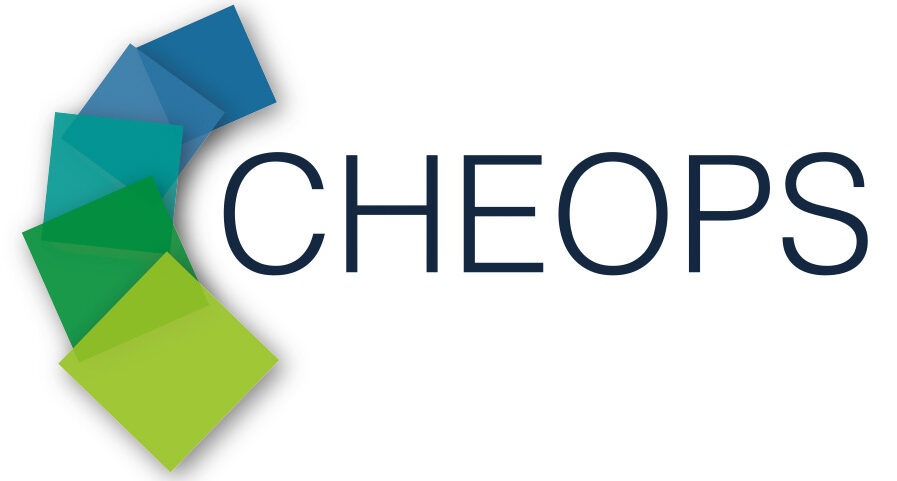The EU-funded CHEOPS project involved 12 industrial and academic partners from seven European countries with a total budget of 5 million euros. The project was coordinated by Centre Suisse d’Electronique et de Microtechnique (CSEM) and driven by partners with expertise, knowledge, and resources to reach the project’s goal of achieving low-cost, highly efficient perovskite solar cells:
- Research excellence was guaranteed by the four renowned universities: the University of Oxford, Università degli Studi di Roma Tor Vergata, EPFL—PV-Lab and the University of Salford.
- Advancement of TRL was ensured by four specialised research centres: CSEM, Tyndall, INERIS, and the Fraunhofer Institute for Applied Polymer Research (IAP)
- Life-cycle analysis of perovskite technology was conducted by one SME specialising in the life cycle analysis of PV devices in the required manufacturing processes: SmartGreenScans
- The socio-economic assessment of the new technology including risks and opportunities of the manufacturing process was led by Institut National de l’Environnement et des Risques.
- The path to commercialisation was pushed forward by two industry partners Oxford Photovoltaics Ltd. and Merck KGaA.
- The research management and the dissemination of project results was ensured by accelopment AG.
Centre Suisse d’Electronique et de Microtechnique (Project Coordinator)
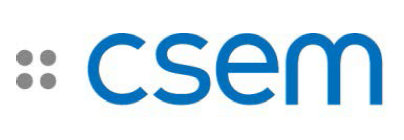
CSEM, Centre Suisse d’Electronique et de Microtechnique (Swiss Center for Electronics and Microtechnology), founded in 1984, is a private non-profit applied research and development center specializing in micro- and nanotechnology, systems engineering, photovoltaics, microelectronics, and communications technologies. It offers its customers and industry partners custom-made, innovative solutions based on its knowledge of the market and the technological expertise derived from applied research.
The CSEM PV-center is an industry driven, application oriented program within CSEM created to bring new high-tech solutions for solar components and systems to technological maturity, and serve the global renewable energy industry. The PV-center is able to provide a full range of services to partners, ranging from technology development to product prototyping including the realization of full-size demonstration systems. The infrastructure of the PV-center includes specialty systems for coating, patterning, printing, and fabrication processes, as well as pilot manufacturing lines – from glass cleaning and wafer etching up to the assembly of fully functional PV modules and systems.
Tyndall National Institute

Tyndall National Institute, University College Cork, is one of Europe’s leading centres for Information and Communications Technology research and is the largest facility of its kind in Ireland. Its mission is to deliver new opportunities for Ireland’s economic growth through excellence in research and development, and post-graduate education & training, and by delivering innovative solutions to the grand challenges of the information society, including communications, energy, healthcare and the environment. The main research fields at Tyndall are electronics, photonics, materials and smart systems. Researchers, support staff and postgraduate students at Tyndall currently number over 400. The advanced materials and surfaces group specialises in the growth and characterisation of thin films and interface control layers by vapour deposition methods.
University of Oxford

The University of Oxford is one of the oldest established Universities in the world currently employing around 3,500 social and physical scientists, training 12,000 undergraduates and 7,500 postgraduate research students. The Physics Department has the jointly-highest ranked research environment for physics in the UK. Presently, the University is rapidly growing in the area of sustainable energy and thin-film materials across all divisions. Over the last 8 years the mathematical, physical and life sciences (MPLS) division made eight new permanent appointments in the area of Energy and an additional 4 appointments in thin film materials. There is a strong drive within Physics, Materials and Engineering towards energy related materials, with pioneering work on perovskite solar cells being conducted in Physics.
Università degli Studi di Roma ‘Tor Vergata’
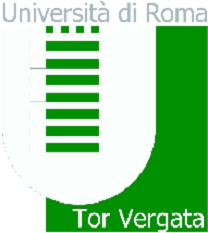
The University of Rome “Tor Vergata” is based on a campus of 600 hectares with 43,000 students and 19 Departments. The University has established in 2006 together with the Lazio Region the “Centre for Hybrid and Organic Solar Energy” (CHOSE). The centre’s objectives are the research and development for the industrialization of organic and hybrid organic-inorganic technologies via three main steps: i) define a technological process for organic/hybrid cells, ii) develop fabrication processes for indus-trialization, iii) foster technology transfer towards SMEs. More than 30 researchers including 15 PhDs, 8 Post Docs, 4 Staff Members and other students and technicians are currently working at CHOSE. CHOSE is member of the EERA-PV platform, participates in the GRAPHENE Flagship, and is a partner of Dyepower, a R&D consortium for industrialisation of DSC facades.
INERIS

Founded in 1990, INERIS is a public research agency, with industrial and commercial purposes, under the supervision of the French Ministry of Ecology, Sustainable Development and Planning. INERIS’ mission is to assess and prevent accidental and chronic risks to people and the environment generated by industrial activities, chemical substances and underground works. INERIS is engaged in two main sorts of research and activities:
Characterisation and understanding of the phenomena that underlie the risks affecting safety or property of people, health and environment as a result of economic activities;
Improvement of the identification and evaluation of such risks in order to enable decision makers in the public and private sectors to adopt the most appropriate measures to improve environmental safety.
Fraunhofer Institute for Applied Polymer Research

The Fraunhofer-Gesellschaft zur Förderung der angewandten Forschung e.V. (Fraunhofer) is the leading organisation for applied research in Europe, undertaking contract research on behalf of industry, the service sector and the government. The main task of the Fraunhofer Institute for Applied Polymer Research (Fraunhofer IAP) is the development of new materials and device technologies up to technology transfer. The Fraunhofer IAP has 210 employees and an annual turnover of € 14 million.
École Polytechnique Fédérale de Lausanne
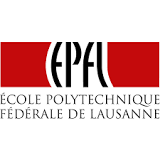
EPFL is a public institution founded in 1969, mainly funded by the Swiss Confederation. The EPFL is an engineering college active in education and research and has three core missions: training, research and technology transfer. It covers disciplines ranging from the Basic Sciences to Engineering, Architecture and the Life Sciences. Its main campus brings together over 13,000 persons, students, researchers and staff in the same place working in 5 Schools, 2 Colleges, 1 Transdisciplinary Entity, 27 Institutes, 340 laboratories, 9,868 students (Bachelor, Master, PhD & post-docs) of over 125 nationalities, and 329 faculty. The female students and professors are 27%. It has 168 start-ups established between 2000 and 2012, 111 invention disclosures, and 66 priority patents filed. The total Annual Expenses are 860 MCHF. The group participating in CHEOPS is the Photovoltaics and Thin Film Electronics Laboratory (PV-LAB) of EPFL.
University of Salford

Salford University has approximately 17,000 students and is located in Manchester, UK. The University has a long history of applied science and technology research, and for its close collaboration with Industry. The University research efforts are organised into Centres (teaching is done within Schools).
The Materials & Physics Research Centre is the largest Institute within Salford University, and the CVD Group lies within this. The group has an established reputation as a leading research group in AP (atmospheric pressure) CVD and has the largest range of APCVD laboratory research coaters in UK and quite possibly Europe. They have extensive experience in the thin film deposition and analysis of a wide range of metals, oxides and semiconductors.
SmartGreenScans

SmartGreenScans was founded in 2009 and is a Dutch consultancy company specialised in performing Life Cycle Assessments of Photovoltaics to determine life-cycle environmental impacts and resource depletion, including evaluation of Carbon Footprint, Toxicity and other environmental impacts, energy payback time and life-cycle emissions to air and water.
Oxford PV Ltd

Oxford PV is the technology leader in the field of perovskite solar cells. Established in 2010, as a spin-out from the University of Oxford, the company today has the largest team globally, exclusively focused on developing and commercialising perovskite based solar technology. Oxford PV has a research & development site in Oxford, UK and an industrial site in Brandenburg, Germany enabling the accelerated transfer of their technology to industrial scale solar cell production.
Oxford PV’s disruptive perovskite solar technology has the potential to enable efficiency gains that will transform the economics of silicon solar technology and help accelerate the proliferation of solar energy generation globally.
Merck KGaA
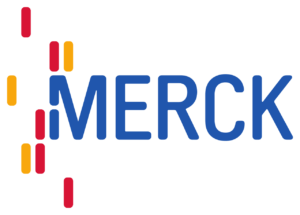
Merck is a leading company for innovative and top-quality high-tech products in healthcare, life science and performance materials. Around 39,000 employees work in 66 countries to improve the quality of life for patients, to further the success of our customers and to help meet global challenges. We generated total revenues of € 11.1 billion in 2013 with our three segments: Healthcare, Performance Materials and Life Science.
Merck products are known and established throughout the world. Whether our medicines of biological origin, over-the-counter products, products for allergen immunotherapy, liquid crystals for LC displays, Merck pigments for the coatings, plastics and printing industries as well as lab solutions for pharmaceutical research and biotechnology – products and services from Merck enjoy a high level of trust everywhere.
accelopment Schweiz AG

SME partner accelopment Schweiz AG assists companies, universities and other organisations in EU project management and the dissemination and exploitation of project results. The company is specialised in European research, development and innovation support programmes such as Horizon 2020, the Seventh EU Framework Programme (FP7) and EUREKA/Eurostars. The focus is primarily on projects in the life sciences, information and communication technologies (ICT), environment and energy sectors and in the areas of materials (NMP) and manufacturing (FoF). accelopment’s multi-disciplinary staff have over 19 years of experience individually in EU and national funded projects in ICT, NMP, manufacturing and automation industries and others.
The core activities include professional project administration, communication and reporting as part of the project management and the facilitation of project dissemination to external stakeholders through website development, production of print material and online communication such as Flash and HTML5 animations, event organisation, project presentations at external events and others. Moreover, accelCH supports the exploitation of project results by drafting and negotiating consortium agreements and maintaining an IP management system. accelopment is ISO 9001 certified and internationally accredited by IQnet.

